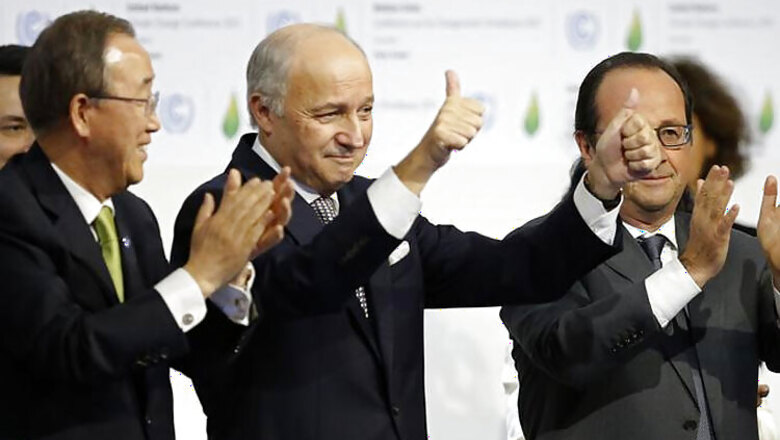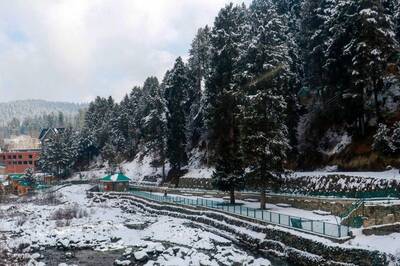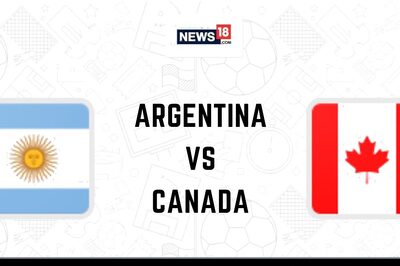
views
Le Bourget: A landmark climate change deal was on Saturday night clinched with the approval of India, China and the US, after days of tough negotiations here with the legally- binding pact seeking to limit global warming to "well below" 2 degrees Celsius and committing USD 100 billion a year from 2020 to help developing nations.
The target of well below 2 degrees Celsius and even more ambitious 1.5 degrees Celsius was originally expected not to be to the liking of developing countries like India and China who are major emitters on account of industrialisation but Environment Minister Prakash Javadekar was effusive in his welcome of the 31-page document.
On the crucial financing issue, developed countries agreed to muster at least US dollars 100 billion a year from 2020 to help developing nations. However, following US objections, it was not included in the legally binding section of the deal. Ending nearly a fortnight of gruelling UN negotiations, French Foreign Minister Laurent Fabius banged the gavel to announce that the Paris agreement has been adopted, marking consensus among the ministers, who stood for several minutes to clap.
"I see the room, I see the reaction is positive, I hear no objection. The Paris climate accord is adopted," Fabius declared. The deal, to take effect from 2020, ends decades-long rows between rich and poor nations over how to carry out what will be a multi-trillion-dollar effort to cap global warming and deal with consequences already occurring.
The Paris accord sets a target of limiting warming of the planet to "well below" 2.0 degrees Celsius compared with the Industrial Revolution, while aiming for an even more ambitious goal of 1.5 degrees Celsius. Earlier, French President Francois Hollande had called Prime Minister Narendra Modi in an apparent bid to persuade India to go with the deal.
Welcoming the deal, Javadekar said, "Today is a historic day. What we have adopted is not only an agreement but we have written a chapter of hope in the lives of 7 billion people." He had earlier said that the differentiation between developed and developing countries, which India had been demanding, was mentioned across all the pillars of action including mitigation, adaptation, finance and access to technology.
He had said the draft text was a "balanced" one and was a way forward for the world. Terming it as an "important achievement" for India, Javadekar had said that "sustainable lifestyles and climate justice" which have been espoused by it also get a mention in the final 31-page draft.
"After the first glace of the final text, we are happy that the text contains and take care of concerns of India. It is linked with the convention (United Nations Framework Convention for Climate Change) while Common But Differentiated Responsibilities is imbibed in it," Javadekar said.
"More importantly, differentiation for developed and developing countries are mentioned across all pillars of action -- mitigation, adaption, finance, technology capacity and transparency. That is very important thing," he said.




















Comments
0 comment